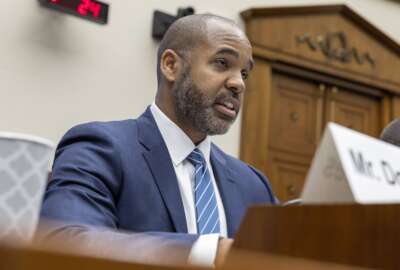mHealth: Transforming the face of health service delivery
Hear firsthand from Dr. Mwendwa Mwenesi and Dr. Michael Cowan how mHealth is providing accessibility and affordability in global healthcare.
wfedstaff | June 4, 2015 5:00 pm
A powerful combination of factors are driving mHealth service delivery across the globe. Rapid advances in mobile technologies, the integration of mobile health into existing eHealth services, and the growth of cellular networks are leading the way. Hear firsthand from Dr. Mwendwa Mwenesi and Dr. Michael Cowan how mHealth is providing accessibility and affordability in global healthcare.
Guests:
Dr. Mwendwa Mwenesi, mHealth Coordinator, Tanzania Ministry of Health and Social Welfare
Dr. Michael Cowan, Director, Deloitte Consulting LLP
Show Highlights:
• Why health experts and governments around the world are so optimistic about mHealth’s potential
• Key obstacles mobile health is able to overcome compared to traditional ‘bricks and mortar’ medical care
• How mHealth is transforming the way healthcare is delivered in Tanzania
• The impact mHealth is having on the United States health care delivery
• Innovative mHealth business models that could help overcome the barriers of scale and sustainability in the United States healthcare system
The following is a full transcript of FedCentral’s interview with Dr. Mwendwa Mwenesi, mHealth Coordinator, Tanzania Ministry of Health and Social Welfare and Dr. Michael Cowan, Director, Deloitte Consulting LLP conducted by Jane Norris on February 1, 2012. To listen to the full interview go to http://www.deloitte.com/us/fedcentral.
Jane Norris
Welcome to FedCentral brought to you by Deloitte, a program where executives and federal government leaders talk about the issues and initiatives that are making a real impact on the business of government today, to help government help America.
Today we’re talking about the use of mobile and wireless technologies to support health objectives. It’s sometimes called mHealth, and it has the potential to transform the face of health service delivery across the globe. A powerful combination of factors is driving this change, and these include rapid advances in mobile technologies and applications and new opportunities for the integration of mobile health into existing eHealth services and the continued growth in coverage in mobile cellular networks. There are now over 5 billion wireless subscribers, and commercial wireless signals cover over 85% of the world’s population. That’s quite a reach, so today we’ll discuss how the world is using mHealth to expand access, improve quality, and decrease costs in healthcare.
So we welcome two experts in the field. We welcome Dr. Mwendwa Mwenesi, mHealth Coordinator from Tanzania’s Ministry of Health and Social Welfare; and Dr. Michael Cowan, Director, Deloitte Consulting, LLP who join us today. Let me give you a little background.
Dr. Mwenesi is the national mHealth coordinator at the Tanzania Ministry of Health and Social Welfare and an internationally recognized leader in the area of mHealth. A medical doctor by profession, Dr. Mwendwa worked to scale up and improve the healthcare profession and the impact of existing mHealth initiatives. In addition, she’s currently leading the development of the world’s first national-level mHealth strategy, which she recently presented at an mHealth summit in Washington DC. Before joining the ministry, Dr. Mwendwa was in charge of the HIV care and treatment clinic at Tanzania’s National Hospital. Welcome and thanks for joining us.
Dr. Mwendwa Mwenesi
Thank you very much.
Jane Norris
Dr. Cowan is a director in Deloitte Consulting’s Federal Health practice. He’s responsible for clinical leadership in healthcare, social services, and federal health consulting. Formally Dr. Cowan spent 33 years in the US Navy, and he was selected as the 34th naval Surgeon General chief bureau of medicine and surgery. Dr. Cowan, nice to see you.
Dr. Michael Cowan
Thank you, Jane. It’s a pleasure to be here.
Copyright © 2025 Federal News Network. All rights reserved. This website is not intended for users located within the European Economic Area.





